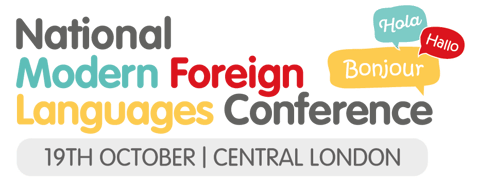Stepping into the role of President Elect of the Association for Language Learning (ALL), here renowned linguist Liz Black shares some reflections on language learning, and the importance of teacher development to ensure quality language education.
My experience as a teacher of both primary and secondary languages and as a teacher trainer has convinced me of the value of lifelong learning. Teachers are very dedicated professionals and like scientists they persist. In recent years teachers of languages have been able to access new developments in curriculum changes in language departments across the world much more easily.
My work as a tutor at the Goethe Institute London delivering the world- wide Deutsch Lehren Lernen programme has influenced my thinking a lot. Each module comprises of tutor input in online seminars, online tasks based on reading recent research and watching and commenting on video clips of examples of good practice from around the world. We consider examples of innovative curriculum development and it is reflecting and developing the ability to compare, contrast and analyse that yields so much.
A recent example is the Newton Report, a summary of a Ministry of Education-commissioned report, Intercultural Communicative Language Teaching: Implications for Effective Teaching and Learning (Victoria University of Wellington).
‘In The New Zealand Curriculum, the ‘learning languages’ learning area provides the framework for the teaching and learning of languages additional to the language of instruction. The desired outcome is for students to be able to communicate effectively in their chosen language or languages when they leave school. The learning area has a core strand of communication, and two supporting strands, language knowledge and cultural knowledge. The Newton report relates to the cultural knowledge strand and the role of that strand in supporting the outcome of communicating effectively.’
In my opinion access to continuing professional development is vital. Teachers need time to the following,in order to be able update their planning and resources where necessary:
- read research
- listen to webinars and podcasts
- discuss with others (either online or face-to-face)
- reflect
Working collaboratively on this is of course saves a lot of time, but it is the deep analysis as committed teachers really think hard about what grammar, structures and texts should be used for which stages of learning that is so constructive. I have often experienced this during the DLL modules and this leads to very effective teaching and ultimately great learning! The final stage of each course is the forming of small groups of teachers who want to look into an aspect of their own teaching in more depth. They work together on a classroom-based action research project, a Praxiserkundungsprojekt, the results of which are presented to the tutors and all the other participants during the last phase. This seminar is always fascinating and leads to very fruitful discussions about the implications for future planning.
Over the years I’ve been so fortunate to work with many inspiring colleagues and also to read and review new publications. Many have a great impact on me, one in particular Michael Byram’s Teaching and Assessing Intercultural Communicative Competence. His research has always interested me and I would really recommend some reflection on his model of the 5 ‘savoirs.’ There are currently many discussions about the importance of and reasons for learning languages taking place, as well as debates about pedagogy. What exactly do we as educators most desire for the learners of languages? What are the key skills/competences needed in the 21st century? How can we encourage the ‘critical cultural awareness’ that Byram describes? What are our curriculum goals and why? What should/could be changed and why?
We are certainly living through challenging times. As politicians continue to grapple with difficult decisions, educational establishments are faced with uncertainty. Teachers the world over have risen to the challenges of online learning and changes in assessment in remarkable ways. They are ready to continue to embrace change that improves the learning both in the classroom and online. I’m sure as passionate linguists we can all work together as we believe that there has never been a more important time to learn another language and convincing our students and the wider society has to be our focus. As I start in the role of President Elect of ALL, I aim to listen to teachers and consider what we can work on together to improve the status of language learning in all our schools. Considering excellent practice in other continents and collaborating with colleagues in all sectors and our cultural partners will be beneficial. ALL will continue to provide support.
Hear more from ALL at this year's National MFL Conference!
Click below to find out more:
